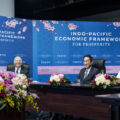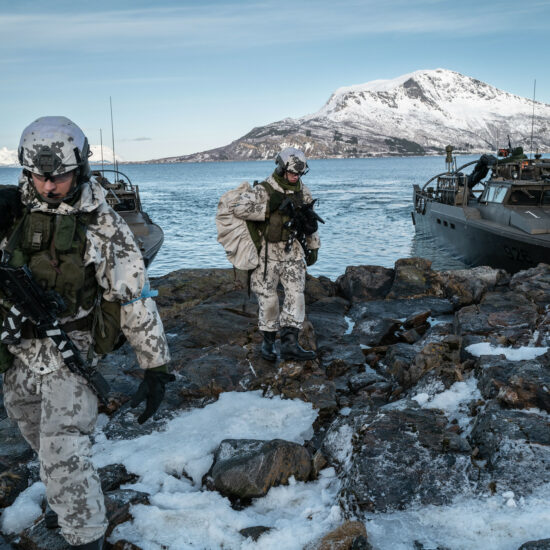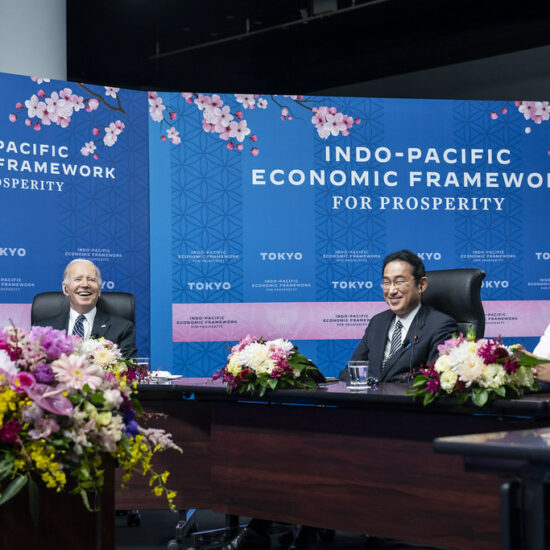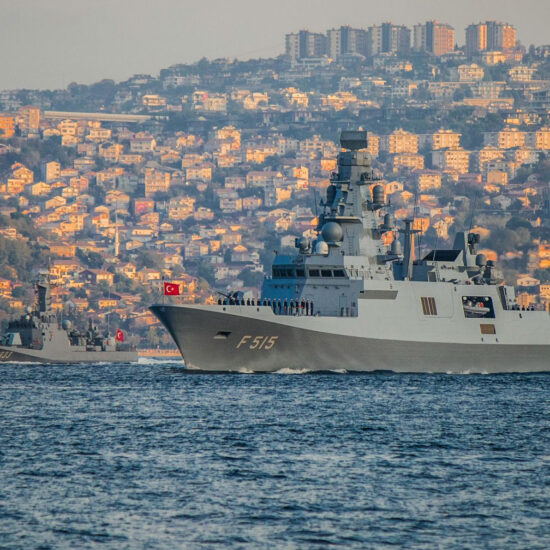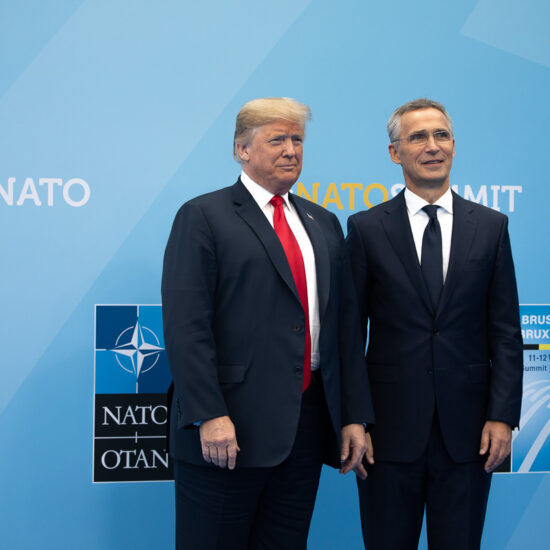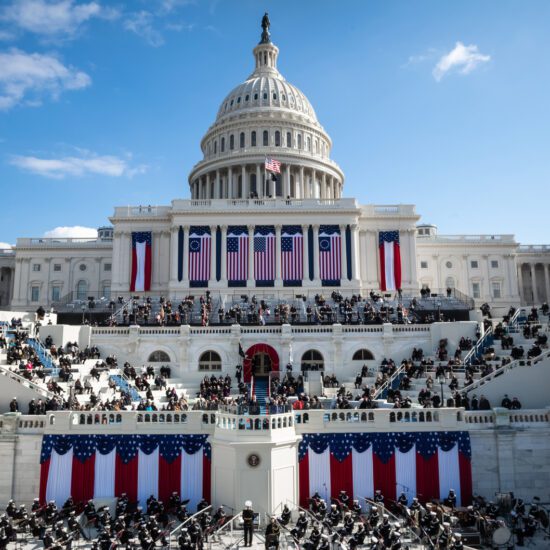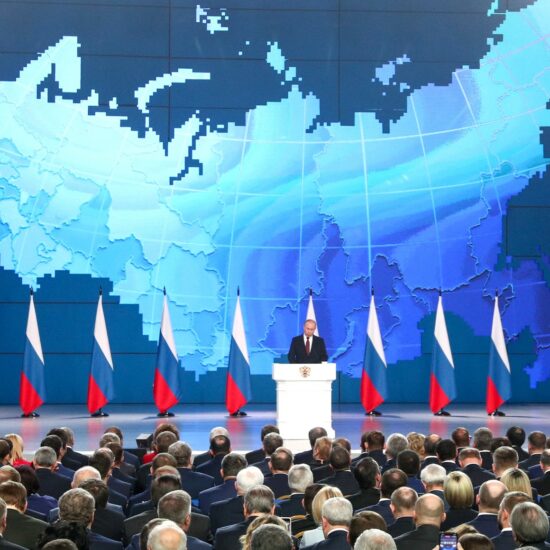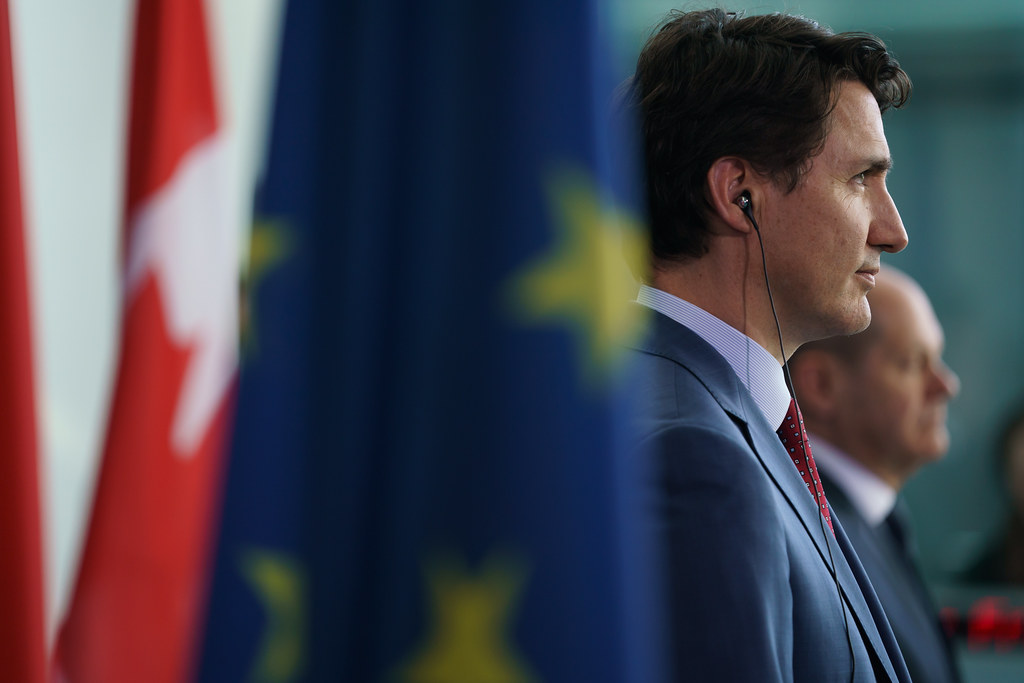
Image credit: Office of the Prime Minister
Canada’s International Decline Runs Deeper Than Foreign Policy Decisions
Six years ago, approaching the end of his second term, U.S. President Barack Obama addressed the House of Commons in Ottawa, saying “the world needs more Canada.” Even the famously self-effacing Canadians are hardly immune to flattery, and the national media quite naturally lapped this up. And yet the intervening years appear to tell a different story: one of increasing marginalization, with President Biden revoking the Keystone Pipeline permit, China detaining its citizens with impunity, and Canada again being denied a seat as a non-permanent member of the United Nations Security Council.
The story of Canada in the world today is not best understood as one of decline, however, but of stasis. To see this properly, one has to go back 30 years. For more than almost any other country in the world, Canada has had a very, very good end of history.
When the militarized budgets of the Cold War gave way to the easy, non-zero sum liberalism of the 1990s, Canada was pleased to benefit from the opening of global markets to trade. With 1995 representing the high watermark of Québécois separatism, Canada afterwards appeared well-positioned to enjoy the age of post-nationalism, deepening its commitment to establishing a multicultural citizenry while (sotto voce) benefiting from highly parsimonious immigration policies. And of course, after 2008, when Canada largely avoided the housing market disaster that cratered global markets, the unofficial management of its economy by an oligopoly of large banks appeared genteelly prudent next to the apocalyptic scrum down south.
In sum, the dividends of the global capitalist peace abroad, in conjunction with Canada’s abundant resources, strong welfare state, and high level of human capital at home, would continue to accrue indefinitely. The tide of history had surely lifted all boats, and if Canada’s was sailing higher than most, it would in its diffident way sail along content in its good fortune, without announcing it too loudly to the rest of the world.
And yet at no point was Canada’s actual position in the world materially significant. Canada initially contented itself with high-profile peacekeeping operations, driven by a then widely-shared belief that past metrics of power were declining in importance (though even these were severely curtailed after the disastrous events in Somalia and Rwanda). It is telling that for much of the post-Cold War era, the most recognizable and most representative individual associated with Canadian foreign policy was not a political leader of any kind, but Romeo Dallaire, in his capacity as commander of a United Nations peacekeeping force. Dallaire is an undeniably heroic figure, but one whose reputation was earned in the service of an essentially disinterested and universalistic mission from the standpoint of Canada’s strategic goals.
Nonetheless, for many years, his was the face that Canada was happy to present to the world: an image of personal virtue disconnected from any larger national purposes. From a PR perspective, this had the double advantage of associating Canada with courage and self-sacrifice, while avoiding any association with particular national goals or interests, which are necessarily more exclusive.
By contrast, almost no one outside (or even inside!) Canada would have had a strong impression of the geopolitical aims of Jean Chrétien, Paul Martin, or Stephen Harper. Moreover, the most consequential policies of all three—building economic ties with the People’s Republic of China and supporting NATO missions in the Balkans and later Afghanistan—largely amounted to shadowing the stances of Canada’s southern neighbour.
Now that the geopolitical sands are shifting, Canada’s relative situation has been revealed more clearly. What can look like decline, in other words, might better be described as the emergence of certain underlying realities that were present the entire time. Continuous with the prior decades since the end of the Cold War, Canada hasn’t really formulated a meaningful sense of what it wants from the world – even Paul Martin’s attempt to balance pro-Americanism with a rhetorical commitment to multilateralism never did amount to much, both because there was no clear principle by which to balance the two and because resources for the latter were consistently lacking. The absence of a defined national interest may also become more of a domestic problem in years to come.
And yet is Canada really unique in its strategic drift? Have the European powers, whether individually or collectively, demonstrated a clear willingness to be a force in the world since the signing of the Maastricht Treaty? Have India or Brazil—one half of the famous BRIC countries—established significant regional dominance in their respective domains? Has even the United States managed to generate a concrete and consistent geostrategy over the past 30 years, even as it has enjoyed decades of unrivalled primacy?
In a very real sense then, Canada looks like a canary in a coal mine. The same forces that impelled it to the forefront of the quality of life afforded by late-modernity also left it stranded and purposeless. Its junior status within the North American hierarchy makes its plight more revealing, but its paucity of vision is general.
At the time of this writing, Russia’s ongoing invasion of its neighbour, Ukraine, has apparently triggered a geopolitical shift. For the first time since the end of the Cold War, a major power besides the United States has engaged in substantial offensive military action; Europe has finally signalled a willingness to commit costly resources to its armed defences; even Switzerland has abandoned its position of studied neutrality to join in unprecedented economic sanctions.
The urgency of the Ukraine situation has now produced a round of responses demanding a new seriousness of purpose for Canada. This is to make the wish the father of the thought—for it is guided by a desire to be an important country in the absence of sustained reflection about what that seriousness might consist. To put it another way, this amounts to expressing an interest in having interests, rather than apprehending the nature of Canada’s existing involvement in the world from which certain interests might derive.
And even beyond this, there is a deeper problem, concerning Canada’s underlying identity. For the duration of the post-Cold War era, its leaders have been content with its status as a corporate beneficiary of larger historical and systemic forces.
More broadly, as philosopher George Grant wrote over a half-century ago: “[Canada’s] ruling class is composed of the same groups as that of the United States, with the signal difference that the Canadian ruling class looks across the border for its final authority in both politics and culture.” The absence of a distinctly Canadian leadership has hindered the country’s ability to define its national terms.
The outstanding question for Canada—as it is for any sovereign country—is whether its leaders can still articulate a national understanding that is sufficiently compelling to its citizens to allow it to act as a coherent historical entity. After all, before a nation can have interests to pursue, it must exist in a way that might be recognizable across generations, and not just function as the temporary meeting place of a particular assortment of populations and capital. It is incumbent upon its leaders, then, to articulate a vision of Canada that is distinctive to its own history and geography, rather than one that echoes either the pacific or the militant variations of generic globalism.
What, then, is Canada to be, and what does it want from the world? These are questions that Canada has been unable to answer—or even properly address—since well before 2016. By the way, Obama didn’t come up with that line about Canada; he was repeating what irritating U2 frontman Bono had said years earlier. Of course, Bono also told us that he still hadn’t found what he was looking for.
Dr. David Polansky (@polanskydj) is a Research Fellow at the Institute for Peace and Diplomacy and a political theorist who writes on U.S. foreign policy, geopolitics, and the history of political thought

